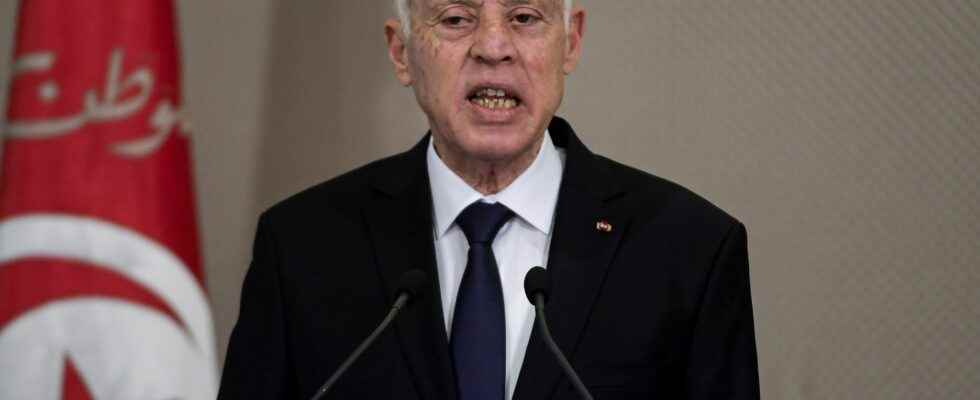“Here lies the Revolution”. The epitaph could appear at the entrance to the Bardo Palace in Tunis, the seat of a National Assembly that has become the symbol of authoritarian restoration in Tunisia. Eleven years after having shown the example to the Arab world by organizing the first free elections in its history, Tunisia is voting this Saturday, December 17 for legislative elections with a bitter taste. The Assembly, suspended since the “presidential coup” of Kaïs Saïed, who granted himself full powers on July 25, 2021, will welcome 161 new deputies at the end of this vote. An Orwellian ballot, where political parties were banned from campaigning and foreign journalists from interviewing candidates, all on the orders of the “Independent High Authority for Elections”, which only the Head of State can appoint or oust all 7 members.
“This election takes another step towards dictatorship. It will give birth to a Potemkin Parliament,” laments Monica Marks, researcher at New York University Abu Dhabi, specialist in the Maghreb. Since concentrating the executive, legislative and judicial powers, the “Caïd” has carved out a new bespoke Constitution and rewritten an electoral law setting in stone his hyper-presidentialist regime.
The political parties, which Kaïs Saïed abhors, could not present a list: only individuals without a displayed label were authorized to compete. As for the quotas ensuring gender parity and the inclusion of at least one candidate under 35 per list, they have been abolished. “These new arrangements will likely result in a powerless, fragmented, less representative and ill-equipped legislature to organize vigorous opposition to Tunisia’s authoritarian drift,” predicted in an october note two researchers from the Carnegie Endowment International.
“No new face, no new message”
If not in the hemicycle, will anger be expressed in the street? The return of a “strong man” worthy of the years of the Ben Ali dictatorship (1987-2011) does not seem, for the time being, to mobilize the crowds. The popularity of the “robot” (Kaïs Saïed’s nickname) has certainly eroded a little since his triumphant election in October 2019, with 72.7% of the vote. “But he remains much more popular than the most popular of his opponents,” notes Youssef Cherif, an analyst at Columbia Global Centers in Tunis. A decade of unfulfilled promises by the Islamist party Ennahdha, the majority in the Assembly, has sickened many citizens. Without a political past, Kaïs Saïed knew how to take advantage of it and seduce with a populist, even conspiratorial discourse. No other opposition has been able to come together to respond. “There is no new face, no new message”, sums up Youssef Cherif.
For lack of a satisfactory alternative in their eyes, more and more Tunisians are shunning the ballot box. Only 30% of registered voters voted in the constitutional referendum of July 25, 2022, they were 56% in the second round of presidential elections, three years earlier. And this December 17, the participation looks low. The priority is elsewhere for many Tunisians who are struggling to make ends meet and are bearing the full brunt of inflation linked to the war in Ukraine. It stood at 9.8% in November 2022 and is coupled with repeated shortages of basic necessities. The pasta, flour and sugar sections of grocery stores are emptying and pharmacies are running out of basic medicines. The state, whose coffers are empty, seems powerless. And the indefinite postponement of the IMF’s examination of the Tunisian file, announced on December 14, de facto delays the disbursement of a credit of around 2 billion dollars.
“The increasingly desperate socio-economic situation is Kaïs Saïed’s Achilles’ heel, analyzes Monica Marks. For the moment, he is taking advantage of the exhaustion of most Tunisians, who do not have the force to take to the streets. The word I have heard the most in their mouths in recent months is: ‘fatigue’. But sooner or later, Kais Saïed will become a caricature of himself: an unpopular populist.” Like a certain Ben Ali before him…
